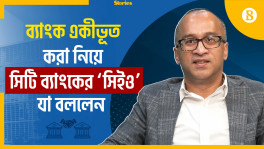Why India wants to claim Kamala
Birth matters above all for many Indians, but the Democratic vice presidential candidate is defined more by her choices than her ancestry

For very different reasons, both Indians and US conservatives are emphasizing Sen. Kamala Harris's Indian heritage. This shouldn't be entirely surprising. Indians have always been quick to appropriate successful members of their diaspora. And right-wing commentators and even US President Donald Trump are seeking to spread suspicions about the Democratic vice presidential candidate's citizenship by emphasizing her mother's Indian background and father's Jamaican heritage. In reality, though, Harris is the very definition of American.
Indian society still largely believes that identity is determined more by one's birth and family than by individual choices and actions. Especially for the very large conservative faction in India, caste and religion are assigned at birth, never to be altered. One cannot technically convert to Hinduism. And the caste system, maintained by marriage, ensures very little social mobility. In India, the birth lottery is everything.

So, Harris and other US political leaders such as Bobby Jindal and Nikki Haley will always be claimed as "Indian" even though they are American-born and their public service has been devoted almost exclusively to Americans. By contrast, someone like Sonia Gandhi, who has spent more than five decades in India and led the Indian National Congress party successfully through two national elections, is routinely described as "Italian-born" or a "foreigner." Had Gandhi not married into the first family of India, her political rise would have been impossible.
That's not to say Harris's Indian roots haven't fundamentally shaped her. Her mother Shyamala Gopalan was born in India and raised in a Tamil Brahmin family, which likely afforded her the Indian equivalent of white privilege. Because of this Brahminical edge, families such as Shyamala's (and mine), boast multiple generations of college graduates in a country that has yet to achieve 100% basic literacy.
Not unusually for "Tam-Bram" families, Shyamala and all her siblings were encouraged to pursue advanced graduate degrees. In Shyamala's case, this included a rare opportunity move to the US to attend Berkeley, creating the possibility of joining the Indian-American elite, or what scholars have dubbed "The Other One Percent." This educational foundation in turn, would have helped ease Harris's own entry into the ranks of the American elite.
The idea that anyone who comes to this country and works hard can change their fortune is still the essence of America, though. While social mobility is limited in certain demographics, the accident of birth matters less in the US than in almost any other country in the world. The American dream remains a cherished personal and policy goal.
What really sets Kamala Harris apart is not the caste or ethnicity of her mother, but the choices her mother made. At 19, Shyamala was relatively young when she came to the US and she quickly became very active in the civil rights movement. That's how she met and married fellow immigrant Donald J. Harris, who is now professor emeritus of economics at Stanford University.
That Shyamala Gopalan married outside her caste and ethnicity would have been extremely unusual for someone of her background in the 1960s. Even more remarkably, she got divorced within a few years. I doubt this was an easy choice. The Brahmins of Besant Nagar, a suburb of Chennai, who are now so eager to claim links to the Gopalans, likely have ancestors that shamed Shyamala's choice of husband. Only recently another Tamil Brahmin, renowned classical vocalist Sudha Raghunathan, was pilloried when her daughter married an African-American man.
In her memoir, Harris writes that her mother also "knew that her adopted homeland would see Maya and me as black girls, and she was determined to make sure we would grow into confident black women." The two girls sang in a choir at a Black church and learned about Black leaders at a local childcare center. Kamala herself chose to attend historically black Howard University rather than an Ivy League school.
Whether this makes her any more or less "Indian" is irrelevant. Identity is a complex thing, even without throwing in immigration, mixed parentage, exogamous marriage and more. Kamala Harris is probably a little of everything she appears to be — and yet the sum of the parts is very different from the components. Like other Brahmin immigrants, she is well-educated, professionally a unicorn and financially successful. But contrary to the expectations of a "Gopalan," Harris enjoys pork chops. And to her proud Jamaican father's displeasure, Harris makes jokes about pot-smoking Jamaicans.
As the campaign unfolds from here, Harris will have to be careful. Hopefully, the birther slurs will be ignored. But Indians can also turn quickly on those they consider their own when they don't conform. Any critiques of India's handling of Kashmir, for instance, will be perceived as those of a traitorous "Indian," not an American politician. Similarly, many in the Black Lives Matter movement will have trouble reconciling Harris's identity as a woman of color with her prosecutorial record.
Harris no doubt realizes she will never be black enough for some African Americans, or Indian enough for some Indians and Indian Americans. But, as the successful daughter of two successful immigrants, now running for the second-highest office in the land, she couldn't be any more American
Disclaimer: This opinion first appeared on Bloomberg, and is published by special syndication arrangement
Disclaimer: This opinion first appeared on Bloomberg, and is published by special syndication arrangement.


 Keep updated, follow The Business Standard's Google news channel
Keep updated, follow The Business Standard's Google news channel
















